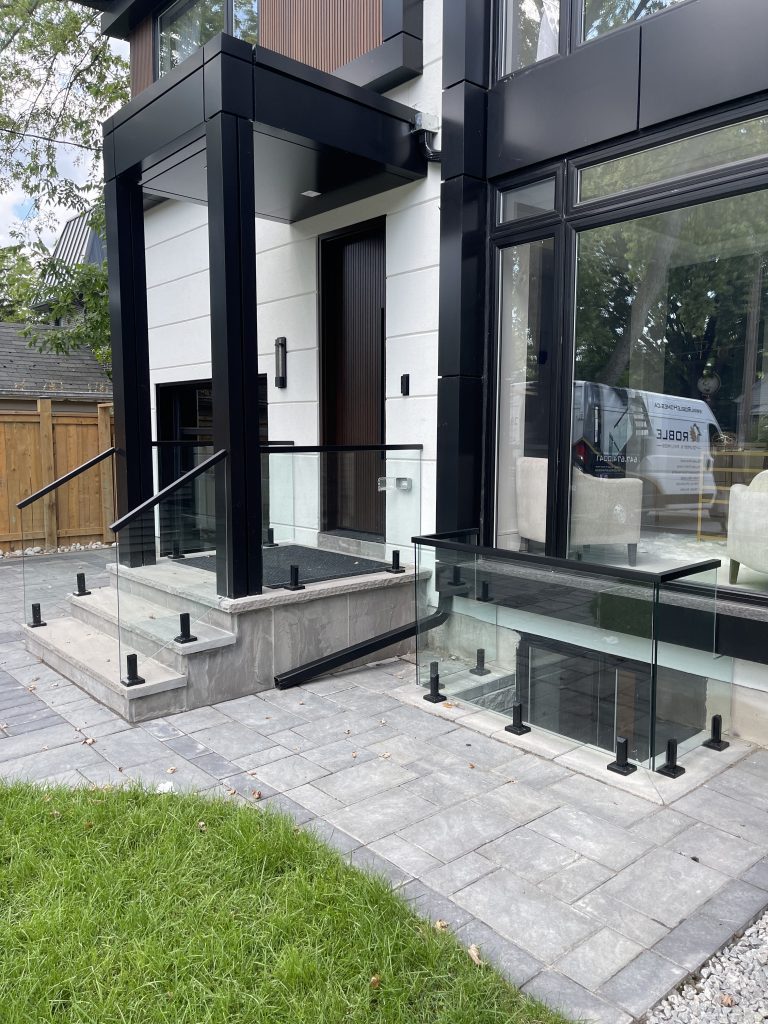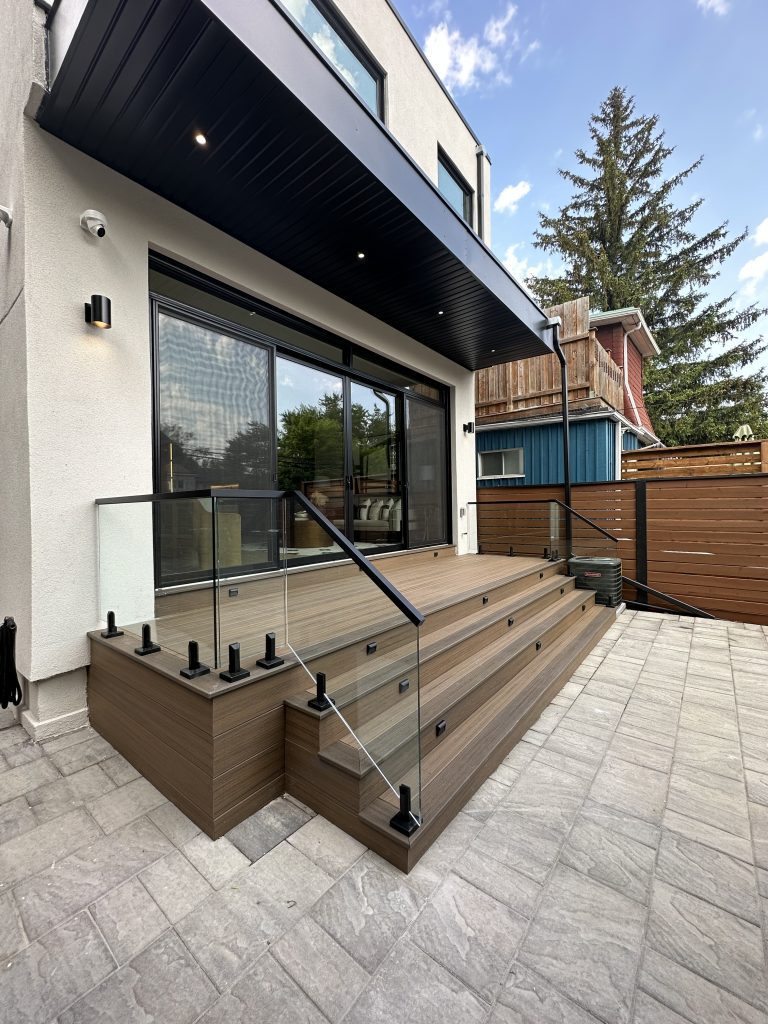
Soundproofing with Glass: Creating Quiet Sanctuaries in Urban Homes
In the heart of bustling urban landscapes, the cacophony of city life is a constant companion. From the relentless hum of traffic to the distant echoes of construction, urban noise is an omnipresent backdrop to our daily lives. While the vibrancy of city living has its allure, the need for tranquillity within our homes has never been more pronounced. Amidst this soundscape, an unlikely hero emerges: glass. Traditionally seen as a mere barrier against the elements, modern glass technology offers a respite from the urban din, transforming our homes into serene sanctuaries. In this article, we’ll delve into the world of soundproofing with glass, exploring how it’s possible to carve out a quiet haven amidst the hustle and bustle of city life.

The Science Behind Soundproofing
Sound, at its core, is a form of energy. It travels in waves, vibrating through various mediums, air, water, or solid materials. When these waves hit a barrier, like the walls of our home, some of the energy is absorbed, some is reflected, and some might pass through, depending on the nature of the barrier. The goal of soundproofing is not just to block sound but to control and reduce the amount of sound energy that penetrates a space.
Soundproofing differs from sound absorption. While absorption reduces the echo or reverberation within a room (think of padded recording studios), soundproofing prevents external noise from entering and internal sounds from escaping. It’s about creating a barrier between you and the noise source.
By its very nature, glass can be an excellent medium for soundproofing. It can act as a formidable barrier against noise when engineered with specific properties. But not all glass is created equal in this regard. The thickness of the glass, the space between panes, and the type of interlayer used can all influence its soundproofing capabilities. As urban areas grow denser and noise pollution becomes a more pressing concern, the demand for effective soundproofing solutions, especially in glass, has surged.
Exploring Different Types of Glass: A Journey through Time and Functionality
Types of Soundproof Glass
The world of soundproofing has evolved significantly, and when it comes to glass, there are specialized types designed to cater to varying levels of noise reduction. Let’s delve into the different kinds of soundproof glass and understand their unique properties:
Laminated Glass comprises two or more layers bonded with an interlayer, usually polyvinyl butyral (PVB). The interlayer acts as a buffer, absorbing and dissipating sound energy, making laminated glass an excellent choice for noise reduction. Moreover, it offers added benefits like enhanced security and UV protection.
Double and Triple Glazing: Double-glazed windows consist of two panes of glass separated by a gap filled with air or inert gas, like argon. This gap acts as an insulator, reducing the transmission of sound. Triple glazing takes it a step further, with three panes of glass and two insulating holes, offering even better sound insulation. These types of windows are also energy-efficient, helping to regulate indoor temperatures.
Acoustic Glass: Specifically designed for superior sound insulation, acoustic glass combines multiple layers of glass with varying thicknesses and specialized acoustic interlayers. This design disrupts sound waves as they travel through different densities, significantly reducing noise transmission. It’s ideal for homes near busy streets, airports, or other high-noise areas.
Understanding the different types of soundproof glass available is crucial when considering an upgrade or installation. Depending on the level of noise pollution in your area and your specific needs, you can choose the most suitable option to create a peaceful environment within your urban home.
Elevate Your Home’s Resale Value with Custom Glass Design
Benefits of Soundproofing with Glass
The decision to invest in soundproof glass goes beyond merely blocking out external noise. The advantages are multifaceted, enhancing the ambiance of your home and contributing to your overall well-being. Here’s a closer look at the myriad benefits:
Enhanced Privacy: Soundproof glass doesn’t just keep external noise out; it also ensures that your conversations and activities remain within the confines of your home. This is especially beneficial for those living in close-knit urban communities where houses are closely spaced.
Protection from External Noise Pollutants: Whether it’s the blaring horns of traffic, the distant hum of a construction site, or the occasional loud pedestrian, urban life is rife with noise pollutants. Soundproof glass acts as a shield, significantly reducing these disturbances and allowing you to enjoy a peaceful indoor environment.
Improved Mental Well-being: Constant noise exposure can increase stress, sleep disturbances, and cognitive impairments. Soundproof glass can improve mental health by creating a quieter environment, ensuring you’re more relaxed and focused in your sanctuary.
Increased Property Value: Homes equipped with soundproofing measures, especially in noisy urban areas, are often more desirable. This can translate to a higher property value, making soundproof glass a worthy long-term investment.
Energy Efficiency: While the primary purpose of soundproof glass is noise reduction, types like double and triple glazing also offer excellent thermal insulation. This means a more relaxed home in the summer and a warmer one in the winter, leading to potential savings on energy bills.
Versatility in Design: Modern soundproof glass solutions are functional and aesthetically pleasing. They can be tailored to fit various designs and styles, ensuring that while you benefit from noise reduction, you don’t compromise on the visual appeal of your home.
Incorporating soundproof glass into your home is a testament to the importance of quality living. It’s an investment in peace, tranquillity, and overall well-being, ensuring that your home remains a serene retreat despite the chaos of urban life.
Practical Applications in Urban Homes
Soundproofing with glass isn’t limited to just windows. Its versatility allows for various applications tailored to address specific noise challenges in urban homes. Let’s explore some of these practical applications:
Soundproof Windows for Street-Facing Rooms: If your home is close to a busy street or intersection, the constant noise of vehicles can be disruptive. Installing soundproof windows in street-facing rooms can drastically reduce this noise, allowing for a peaceful indoor environment.
Glass Doors and Partitions: For homes with open floor plans, internal noise can sometimes be an issue, especially if multiple activities happen simultaneously. Soundproof glass doors or partitions can help segregate spaces, ensuring noise from one area doesn’t disturb another. This is especially useful in homes with home offices or study areas.
Balconies and Terraces: Urban living often means limited outdoor space. Balconies and terraces become essential for relaxation and a breath of fresh air. However, these spaces can also be the noisiest, given their exposure. Soundproof glass railings or enclosures can make these outdoor spaces more enjoyable, shielding them from the surrounding noise.
Skylights: For homes in densely populated areas, skylights offer a way to bring in natural light without compromising privacy. Opting for soundproof glass for skylights ensures that, along with light, you’re not inadvertently letting in noise, especially if you’re close to sources of aerial noise like flight paths.
Home Theaters and Entertainment Rooms: For movie buffs and audiophiles, having a space in the home dedicated to entertainment is a dream. Soundproof glass can ensure that the sound from these rooms doesn’t leak out and disturb others in the house, and vice versa.
You can make informed decisions by understanding the specific noise challenges of your urban home and the various applications of soundproof glass. Whether enjoying a quiet evening on the balcony, ensuring your work-from-home sessions are disturbance-free, or simply getting a good night’s sleep, the right soundproofing solutions can make all the difference.
Tips for Decorating a Glass Balcony: Amplify Your Outdoor Space
Installation Tips and Best Practices
Choosing the correct type of soundproof glass is just the beginning. Proper installation and maintenance are crucial to ensure that the glass performs optimally. Here are some essential tips and best practices to keep in mind:
Ensure Proper Sealing: One of the most common reasons soundproofing fails is due to gaps or leaks in the installation. Ensure the glass is sealed correctly, with no spaces for sound to seep through. Using acoustic sealants can further enhance the soundproofing effect.
Professional Installation: While turning this into a DIY project might be tempting, soundproofing requires precision. It’s advisable to hire professionals, like those at Roble Glass & Railings, who have the expertise to ensure the glass is installed correctly, maximizing its soundproofing capabilities.
Regular Maintenance: Seals can wear out over time, or minor damages might occur. Regularly inspect your soundproof glass installations for any signs of wear and tear. Promptly address any issues to ensure that the soundproofing remains effective.
Consider the Frame: The frame holding the glass plays a significant role in soundproofing. Opt for structures with soundproofing qualities, such as those made from vinyl or wood, as they offer better noise insulation than metal frames.
Thickness Matters: Remember that thicker glass generally offers better sound insulation when choosing soundproof glass. However, ensure that the window or door frames can support the weight of the thicker glass.
Secondary Glazing: If you’re not keen on replacing your existing windows but still want soundproofing benefits, consider secondary glazing. It involves adding an additional pane of glass to the current window, providing an extra layer of sound insulation.
By paying attention to these tips and best practices, you can ensure that your investment in soundproof glass yields the desired results. Remember, while the glass plays a significant role in soundproofing, the installation and maintenance are equally crucial. Proper care and attention to detail can transform your urban home into a peaceful sanctuary shielded from the outside world’s noise.
The Dual Benefits of Glass Walls: Enhanced Aesthetics and Energy Efficiency
Comparing Costs: Is Soundproof Glass Worth the Investment?
When considering any home improvement, cost is often a significant factor. With its specialized features, soundproof glass can come with a higher price tag than standard glass. But is it worth the investment? Let’s break down the costs and benefits to make an informed decision:
Initial Costs vs. Long-Term Benefits: While the upfront cost of soundproof glass might be higher, viewing it as a long-term investment is essential. The peace and tranquillity it brings to your home, the potential energy savings from types like double and triple glazing, and the added property value can outweigh the initial expenditure over time.
Non-Monetary Value: Putting a price tag on peace of mind, improved mental well-being, and enhanced quality of life is challenging. Living in a quieter home can reduce stress, enhance sleep quality, and offer a more comfortable living environment, which is an invaluable benefit.
Energy Savings: As mentioned earlier, certain types of soundproof glass, like double and triple glazing, also provide excellent thermal insulation. This can reduce energy bills as your home becomes more efficient in maintaining desired temperatures during the cold Ontario winters or the warm summers.
Increased Property Value: Homes with soundproofing measures, especially in noisy urban areas, can appeal more to potential buyers. This can translate to a higher resale value, making soundproof glass an expense and an investment in your property.
Alternative Solutions: If the total replacement cost seems daunting, consider options like secondary glazing, which can be more budget-friendly while offering soundproofing benefits.
In conclusion, while there’s an undeniable cost associated with soundproof glass, the myriad benefits it brings to the table make it a worthy consideration. When viewed not just as an expense but as an investment in your home and well-being, the value of soundproof glass becomes evident. As with any home improvement, it’s essential to research, consult with professionals like Roble Glass & Railings, and make decisions that align with your needs and budget.

5 factors to consider when choosing the glass railing system for your home.
Conclusion
The quest for tranquillity amidst the hustle and bustle becomes paramount in the ever-evolving urban landscape. Soundproofing with glass emerges as a beacon of hope, offering urban dwellers a chance to reclaim their peace, privacy, and comfort. It’s not just about blocking out the noise; it’s about enhancing the quality of life, ensuring that our homes remain our sanctuaries, untouched by the chaos outside.
If you’re considering a home renovation or are tired of the constant noise of city life, soundproof glass is the solution you’ve been searching for. With its myriad benefits, from noise reduction to energy efficiency, it’s an investment that promises returns in the form of peace, comfort, and well-being.
Ready to transform your urban home into a serene haven? Reach out to Roble Glass & Railings, Ontario’s trusted experts in soundproof glass solutions. With years of experience and a commitment to quality, we’re here to guide you every step of the way.
📞 Contact us at +1(647)674-0041 or drop us an email at info@roblehomes.ca. Don’t forget to follow us on Instagram for the latest updates, trends, and inspirations in glass and railings. Your peaceful sanctuary awaits!



